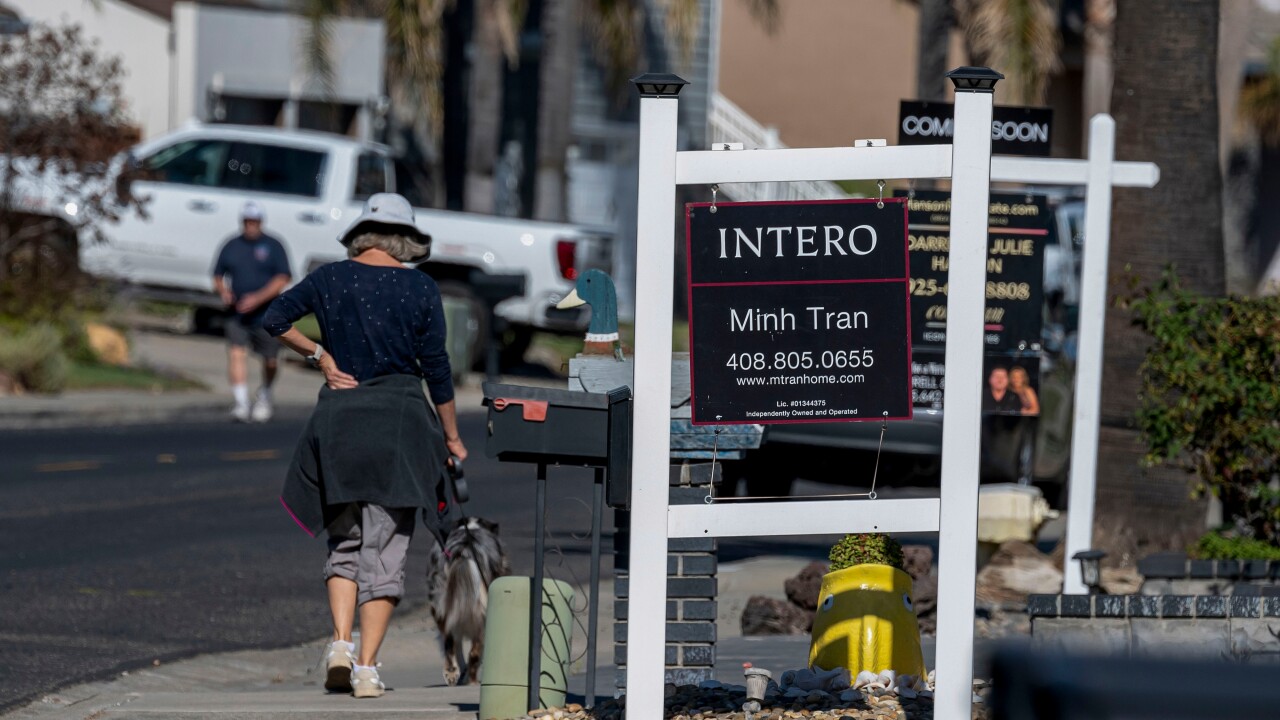
Democrats will adopt a party platform this week that omits most references to a need for continued post-housing crisis reforms, and instead focuses on expanding access to mortgage credit and support for industry regulation.
"We must make sure that everyone has a fair shot at homeownership," a final draft of the platform published July 21 reads. "We will keep the housing market robust and inclusive by supporting more first-time homeowners, preserving the 30-year fixed rate mortgage, modernizing credit scoring, clarifying lender rules; expanding access to housing counseling, defending the Fair Housing Act; and ensuring that regulators have the clear direction, resources and authority to enforce those rules effectively. We will prevent predatory lending by defending the
This suggests a change from the 2012 version of the Democrats' platform, which focused on "expanding access to refinancing for families who have stayed current on their mortgages" and "stabilizing the housing market" in response to its "dramatic collapse."
While Democratic presidential nominee Hillary Clinton and her recently-named running mate, Virginia Sen. Tim Kaine, have not directly commented on the shift in the platform's wording, the language may reflect the extent to which housing has recovered since 2012, when foreclosures peaked.
"We got through the foreclosure crisis without further pushdown of values," said Jeff Bode, president and owner of Mid America Mortgage in Addison, Texas.
The omission of explicit support for some post-crisis reforms may stem from the fact that some of the programs the Democratic administration put in place, such as the
While there is no plan to revive the Home Affordable Refinance Program mentioned in the 2016 platform, there is a promise to "allow those who currently have student debt to refinance their loans at the lowest rates possible," which could help some borrowers qualify for home loans.
And while foreclosures and mortgage performance are not specifically singled out as concerns in the 2016 platform, it does promise that "Democrats will do more to invest in distressed communities," and "expand and make permanent the New Markets Tax Credit."
And Kaine's past interest in investigating how equitably foreclosed homes are managed as well as platform statements about defending the Fair Housing Act suggests some servicing compliance enforcement remain party goals. Kaine, a former fair housing attorney, last June joined a group of senators in calling for "an investigation into potential violations of the Fair Housing Act by banks and lenders neglecting the
The current Democratic platform appears to reflect the needs of a housing market that may have gotten back on its feet in a broad sense when it comes to property values, but now faces new challenges related to affordability, said Diane Yentel, president and CEO of the National Low Income Housing Coalition in Washington, D.C.
"The 2016 platform reflects, I think, today's affordable housing crisis which is in some ways a result of the 2008 crisis," she said. "After millions had their homes foreclosed upon, they re-entered the rental housing markets and we had millions more millennials that were delaying homeownership at the same time, due in part to crushing student loan debt. As a result, we've seen demand for rental units at its highest level since the 1960s."
In line with this shift in the market, more of the housing support the Democrats promise consumers in the current platform appears to be aimed specifically at helping those with the lowest incomes, who may be less likely to become homeowners, than four years ago.
The 2016 platform promises to "combat the…skyrocketing rents in many parts of the country," and "substantially increase funding for the
The 2012 platform identified that, "Too many parents sit around their kitchen tables at night after they've put their kids to bed, worrying about how they will make a mortgage payment or pay the rent," but did not pledge as much support to specific programs aimed at addressing the problem as the 2016 platform.
"I do think the Democratic platform puts in some good proposals to ensure that first-time homeownership is possible for a broader array of people," said Yentel. "The work that we do at the National Low-Income Housing Coalition really focuses on the lowest-income people, who have 30% or even 15% or below the median income, and for them — at least in the short-term — homeownership is not a likelihood. So there really need to be robust federal resources for rental assistance to make it affordable to those families. The Democratic platform does a good job of balancing both."
But it may not appeal to depository mortgage lenders who have become less involved in government-supported lending to lower-income borrowers, said Chris Whalen, a senior managing director and head of research at Kroll Bond Rating Agency in New York.
Many banks that used to be more active in lending to or servicing lower-income borrowers through government programs like the Federal Housing Administration have been deterred by tight regulations and heavy enforcement that have caused them to
"The nonbanks are willing to do that lower FICO business and take the risk, but depositories, they feel they've been basically told to get out [of the business]," said Whalen.
As a mortgage banker, Bode said he views the current Democratic platforms as having its trade-offs. While he likes its promise of additional support for homeownership, he would like to see the Democrats more open to consider
"Mortgage bankers, we hate anything that impedes our ability to do business to make loans, but it seems like a reasonable platform in my opinion," he said.





